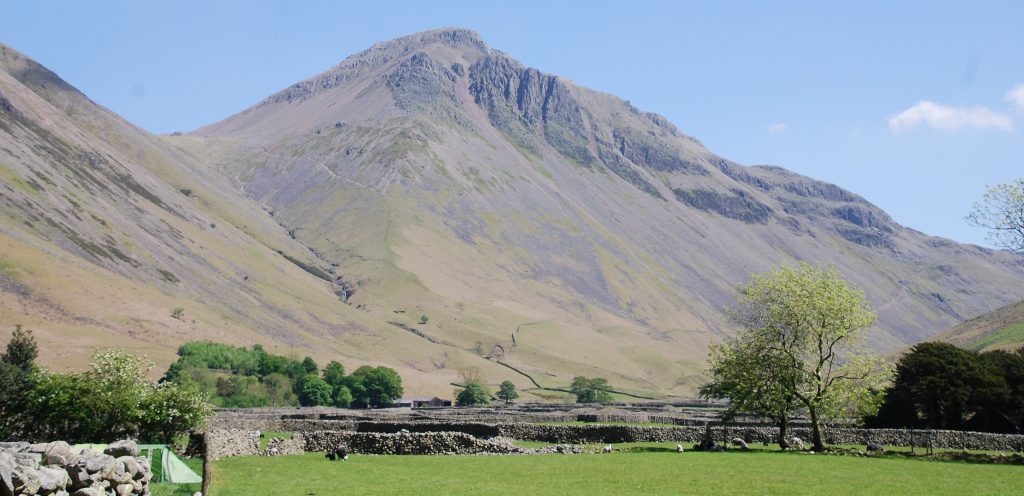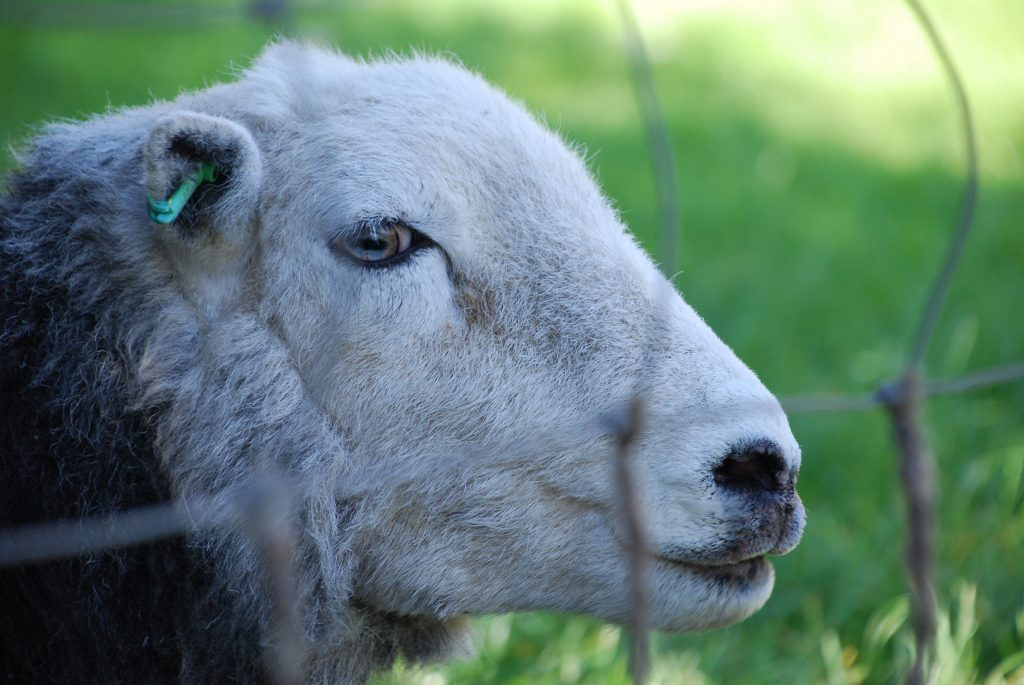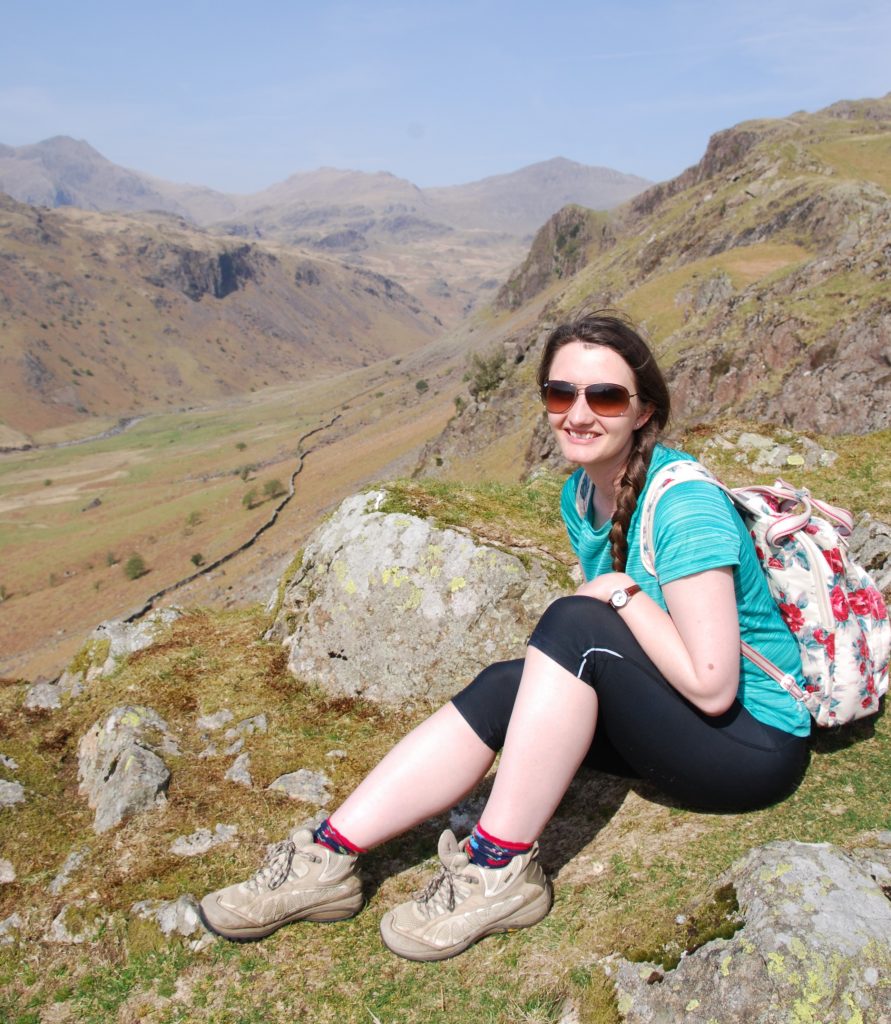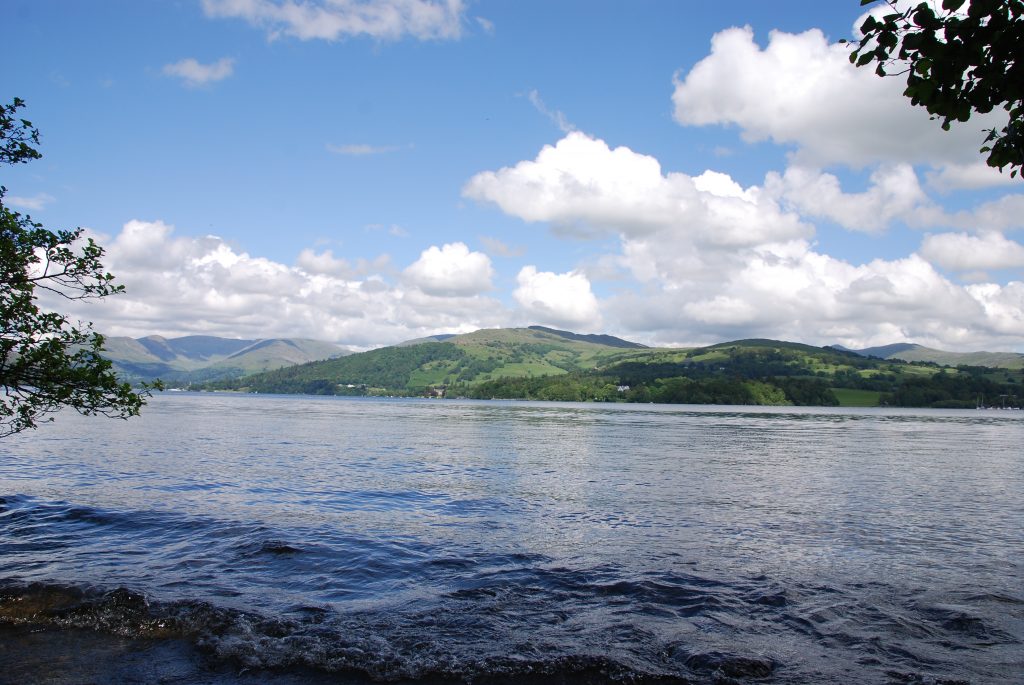
PhD Candidate: Faye Shortland (University of Birmingham)
I am now in the final year of my PhD, supervised by Dr Steven Emery (University of Birmingham) and Dr Katy Bennett (University of Leicester). It began in September 2017 and is fully funded by the Arts and Humanities Research Council (AHRC) through the Midlands 3 Cities Doctoral Training Partnership (M3C DTP)*. I have been involved with the Royal Geographical Society for almost two years, after being elected Annual Conference Officer for the Postgraduate Forum (PGF) in August 2018.
Coming to the end of my time in this role, and the end of my PhD, it seems a good time to reflect on the why and the how of my research. I will give a brief overview of my research, hinted at in Figure 1 and offer a reflection on the PhD process and, specifically, on why and how I worked within a rural setting. My PhD is focused on living cultural heritage within the Lake District National Park and UNESCO World Heritage Site. Its aim is to demonstrate how living cultural heritage can be integrated into the management plans of such a vast site. I participated in Lake District National Park Partnership meetings, sub-group meetings, attended training events, lived on a farm for a while, and interviewed both policy practitioners and farmers.
The fieldwork was largely very enjoyable. I felt lucky as people were very willing to talk to me, and due its relatively recent inscription in July 2017, the Lake District World Heritage Site was at the forefront of most peoples’ minds. This inscription raised questions which my PhD seeks to answer, such as: Whose heritage is important? What types of heritage should be included within the management plans? How can the management plan incorporate multiple stakeholders’ voices? What is the best way to enact the plan on the ground? These questions are difficult to answer (I still find them tricky, especially now I am writing up!) They did, however, make me reflect on why I chose to undertake this topic for my PhD and what it means to me. My interest in heritage and landscapes stems from my childhood and teenage years, when I spent a lot of time staying with my grandparents in Lincolnshire.



We explored stately homes, beaches, castles, and went on walks through the farmed landscape. This undoubtedly shaped my romantic appreciation for the outdoors, and my curiosity to learn more about different aspects of heritage. I confess to having a very rose-tinted view of the outdoors and love walking, hiking up mountains, and painting the landscapes I visit.One of my first visits to the Lake District was to visit my grandad in Keswick. I have been enchanted with this place ever since and I have lost count of the amount of times I have visited, for fun, as well as for Masters and PhD research
My two favourite spots are Coniston and Ullswater, where I could sit and watch the water for hours. Acknowledging my affection for the Lake District is important when considering how I have conducted my work and why I do it. I have familial attachments to the place and feel a strong sense of protection towards its heritage and landscape. This will all obviously influence how I write about it. The PhD process gave me time to reflect, particularly when writing, and I encourage other PhD and Masters students to do the same. Consider why you’ve chosen your topic and consider how you conduct yourself when you’re doing the research. Pragmatically, also consider how you will conduct research in a rural location: I don’t drive, and have had to rely on the goodwill of friends, family, and partner for getting from A to B. I am exceptionally grateful to them all for giving up their time and joining in my research process.
In sum, it has been a highly emotional experience conducting research in a place that means so much to me. It has not been without its challenges, but, overall, I have thoroughly enjoyed it. On reflection, my most important piece of advice for anybody considering a PhD is to research something you are passionate about as it will make it enormously enjoyable. Now, though, I should get back to writing as I need that full draft soon…!
With thanks to my partner, Richard Bruce, for Figures 1-4. You have been my personal photographer throughout the process.
*Now the Midlands 4 Cities Doctoral Training Partnership.